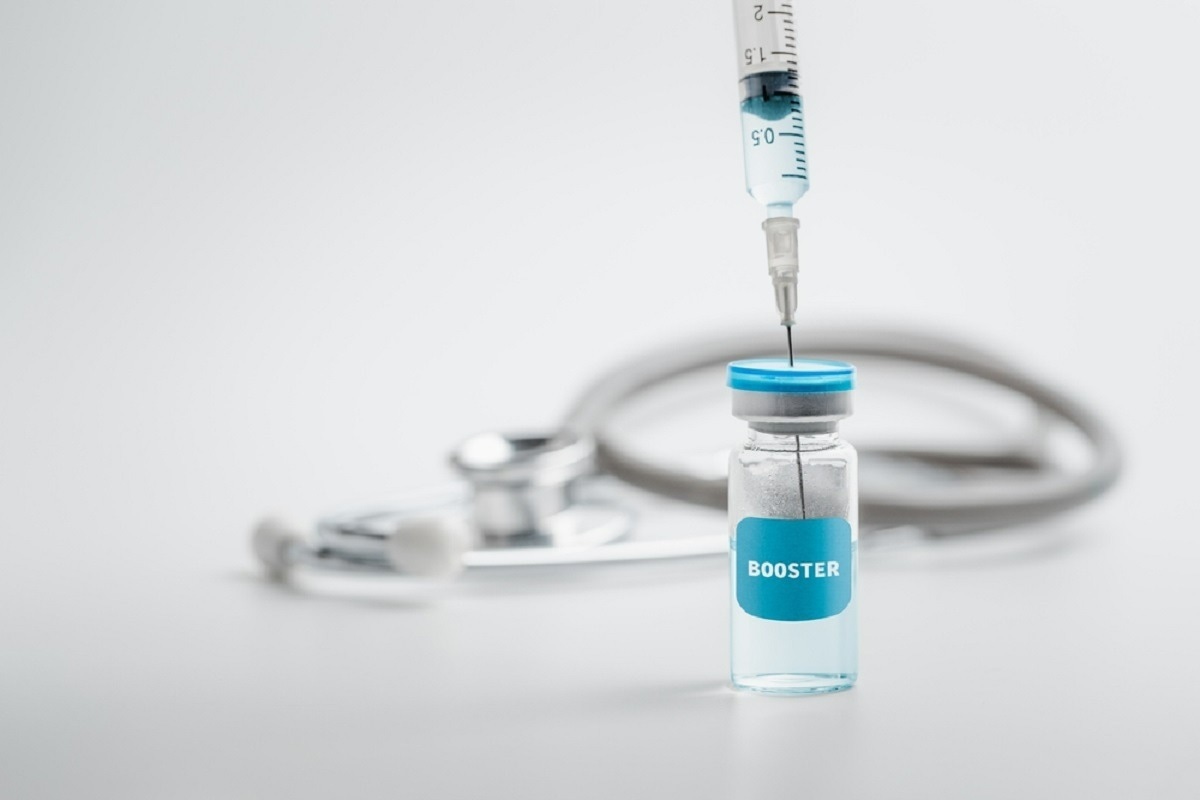
[ad_1]
In a recent study posted to the medRxiv* preprint server, researchers conducted an observational trial in the United States (US) during the severe acute respiratory syndrome coronavirus 2 (SARS-CoV-2) Omicron wave. They assessed neutralizing antibody levels in all US adults ≥18 years who received coronavirus disease 2019 (COVID-19) vaccine boosters before September 2021.

Background
There is a lack of real-world studies which could provide public health data on long-term immunity after the COVID-19 booster vaccination.
About the study
In the present study, researchers utilized mobile health technology to enroll the participants, coupled with at-home blood collection done by participants using the YourBio TAP II device at zero, one, and two months post-enrollment.
The team measured antibody levels in these samples using the MesoScale Discovery (MSD) VAC123 assay. The study had two cohorts; one had individuals vaccinated with Moderna-only primary/booster (MMM), and the other had individuals vaccinated with Pfizer-only primary/booster (PPP).
Study findings
There were 844 study participants with a mean age of 44±13 years. They had received their first booster one to seven months before enrolling for the current study. The authors observed higher geometric mean antibody titers against the ancestral SARS-CoV-2 strain and variants of concern (VOCs), including BA.1.
While MMM titers remained stable for 20 weeks following the first booster, they gradually declined thereafter. Conversely, PPP titers decreased starting from eight weeks following the first booster, suggesting persistent antibody retention among the MMM recipients. During the study follow-up between ≥12 and ≥32 weeks following the first booster, geometric mean ratios of antibody levels were greater than one for MMM compared to PPP.
Conclusions
Overall, the study results demonstrated that compared to PPP, the MMM vaccinees maintained high antibody titers over time against the ancestral SARS-CoV-2 strain and VOCs and were extremely protective against COVID-19. The study used an innovative digital platform and consumer-directed technology, which could serve as a model for future studies requiring timely data collection regarding COVID-19 vaccination programs.
*Important notice
medRxiv publishes preliminary scientific reports that are not peer-reviewed and, therefore, should not be regarded as conclusive, guide clinical practice/health-related behavior, or treated as established information.
[ad_2]
Source link